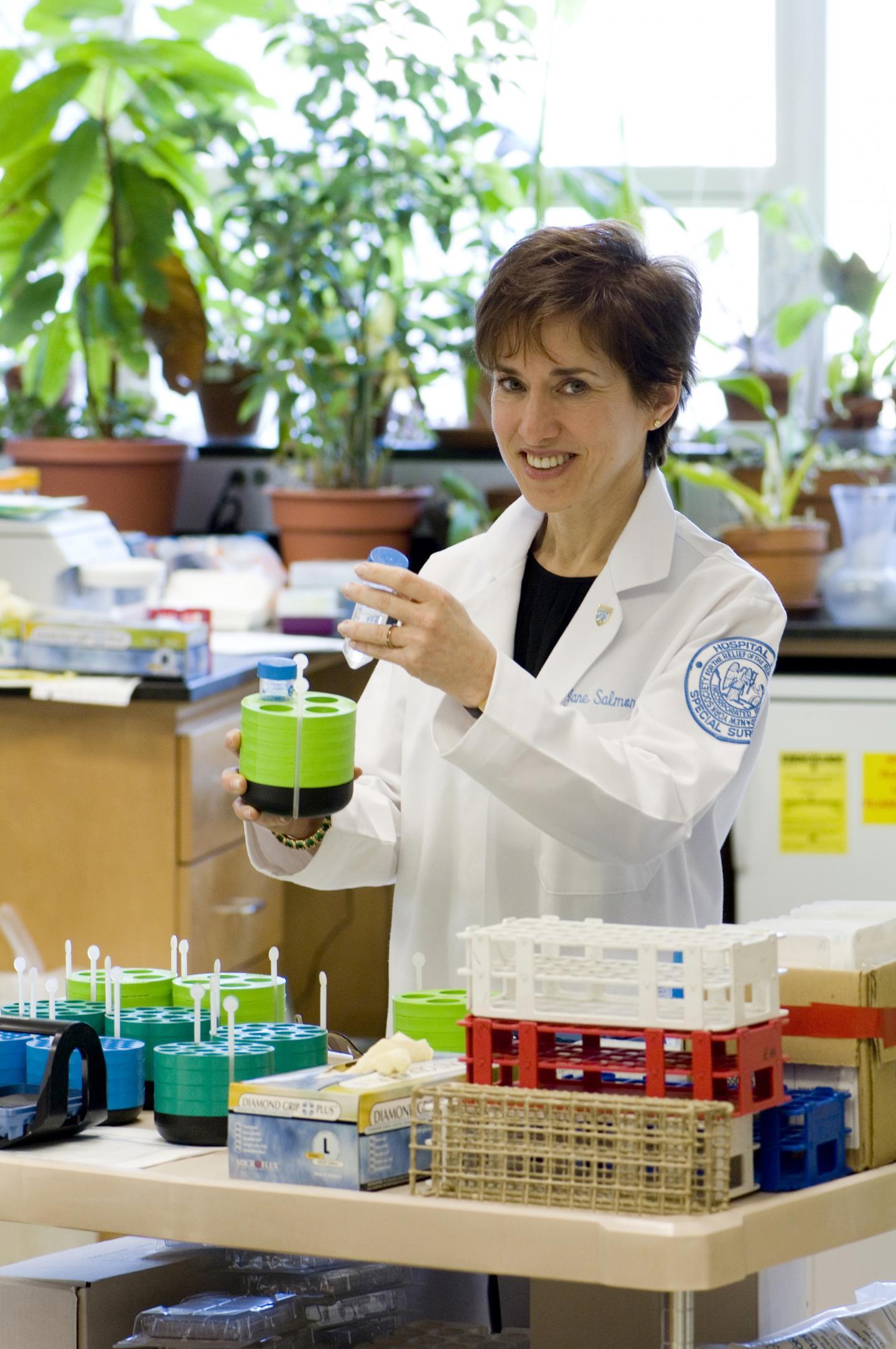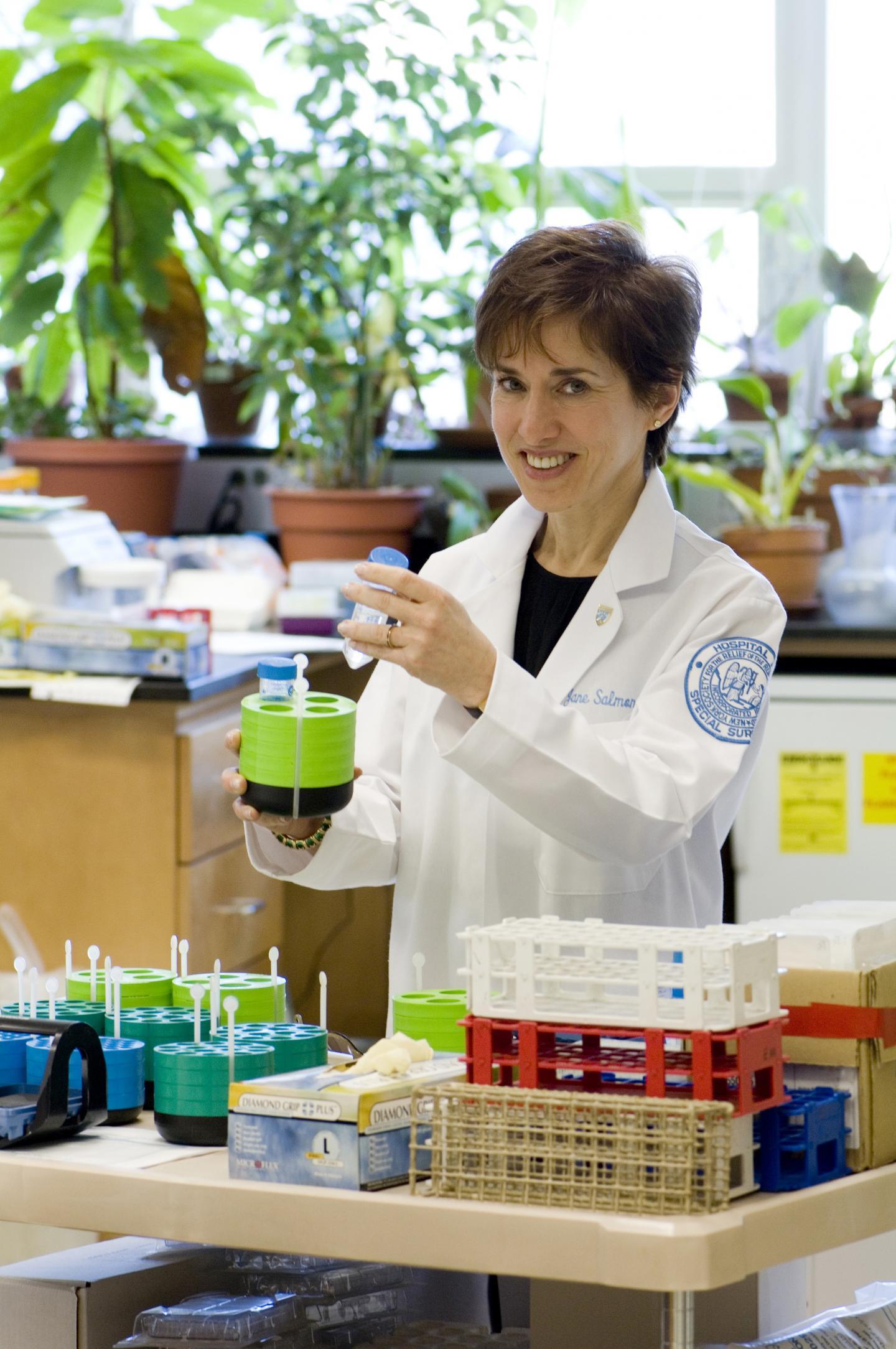
For years doctors have been advising patients with lupus not to get pregnant. It was assumed that the likelihood of pregnancy complications was too high in this population. However, ongoing work by researchers at Hospital for Special Surgery (HSS) is helping identify those lupus patients who are – and aren't – at increased risk of problem pregnancies.
The research, being led by Jane E. Salmon, MD, Director of the Lupus and APS Center of Excellence at HSS, is part of the PROMISSE Study, or "Predicators of pRegnacy Outcome: BioMarkers in antiphospholipid antibody Syndrome and System lupus Erythematosus."
The goal of PROMISSE is identify factors that help predict the likelihood of a successful or unsuccessful pregnancy in patients with systemic lupus erythematosus (SLE) and/or antiphospholipid antibodies (APL) syndrome. The study has identified multiple clinical and biologic markers that correlate with adverse pregnancies, including, most recently, the activation of complement, a series of proteins that protect us from invading microbes.
At this year's American College of Rheumatology Annual Meeting in San Francisco, Dr. Salmon presented new PROMISSE data showing that complement activation is a strong predictor of adverse pregnancy outcomes, including fetal/neonatal death, pre-term delivery, and marked growth restriction.
The study assessed 497 patients with either SLE and/or APL – along with 207 controls – and found that elevated blood levels of two products of complement activation – Bb and sC5b-9 — were associated with an over 50% increase in the rate of pregnancy complications. Levels of Bb, in particular, were increased as early as 12 to 15 weeks in those who ultimately developed problems, and elevated levels persisted through 31 weeks.
Even when other predictors of poor pregnancy outcomes in lupus were controlled for, elevated Bb was still associated with at least a 40% increased risk of pregnancy complications.
"Our studies in animal models of pregnancy complications showed that complement activation was an essential and causative factor in fetal death and growth restriction. PROMISSE is the first study of its size and detail to assess complement activation throughout pregnancy," explains Salmon. "By harnessing the resources of PROMISSE, we have identified another early marker that signals a possible adverse pregnancy. Our team has successfully defined a collection of biomarkers which we are now poised to combine to have an even greater ability to risk-stratify patients."
Despite the well-established association between SLE and APL with pregnancy complications, only 20% of women with these conditions who become pregnant when their SLE is inactive, in fact, have poor pregnancy outcomes. Identification of those women likely to have safe, uncomplicated pregnancies with biomarkers, including products of complement activation, along with clinical risk factors, would enable us to reassure low-risk mothers that their pregnancies should progress normally, and reduce the need for extensive medical evaluations, visits, and costs. Conversely, patients identified as being at high risk could be more diligently monitored. Timely risk stratification of patients is important for effective clinical care, and it will also allow for optimal allocation of healthcare resources.
Dr. Salmon's work is also helping to identify drug targets that could benefit SLE and APL patients at risk for pregnancy complications. "In addition to recognizing those destined for adverse outcomes, our findings provide a rationale for blockade of complement, or its downstream mediators, to prevent pregnancy complications," she comments, continuing, "We are in the final stages of embarking on a trial with an agent that blocks TNF-α, a mediator of placental injury produced as a consequence of complement activation. This will be the first trial of a biologic therapy to protect pregnancies at risk."
###
About Hospital for Special Surgery
Founded in 1863, Hospital for Special Surgery (HSS) is a world leader in orthopedics, rheumatology and rehabilitation. HSS is nationally ranked No. 1 in orthopedics, No. 3 in rheumatology and No. 7 in geriatrics by U.S. News & World Report (2015-2016), and is the first hospital in New York State to receive Magnet Recognition for Excellence in Nursing Service from the American Nurses Credentialing Center three consecutive times. HSS has one of the lowest infection rates in the country. HSS is a member of the New York-Presbyterian Healthcare System and an affiliate of Weill Cornell Medical College and as such all Hospital for Special Surgery medical staff are faculty of Weill Cornell. The hospital's research division is internationally recognized as a leader in the investigation of musculoskeletal and autoimmune diseases. Hospital for Special Surgery is located in New York City and online at http://www.hss.edu.





